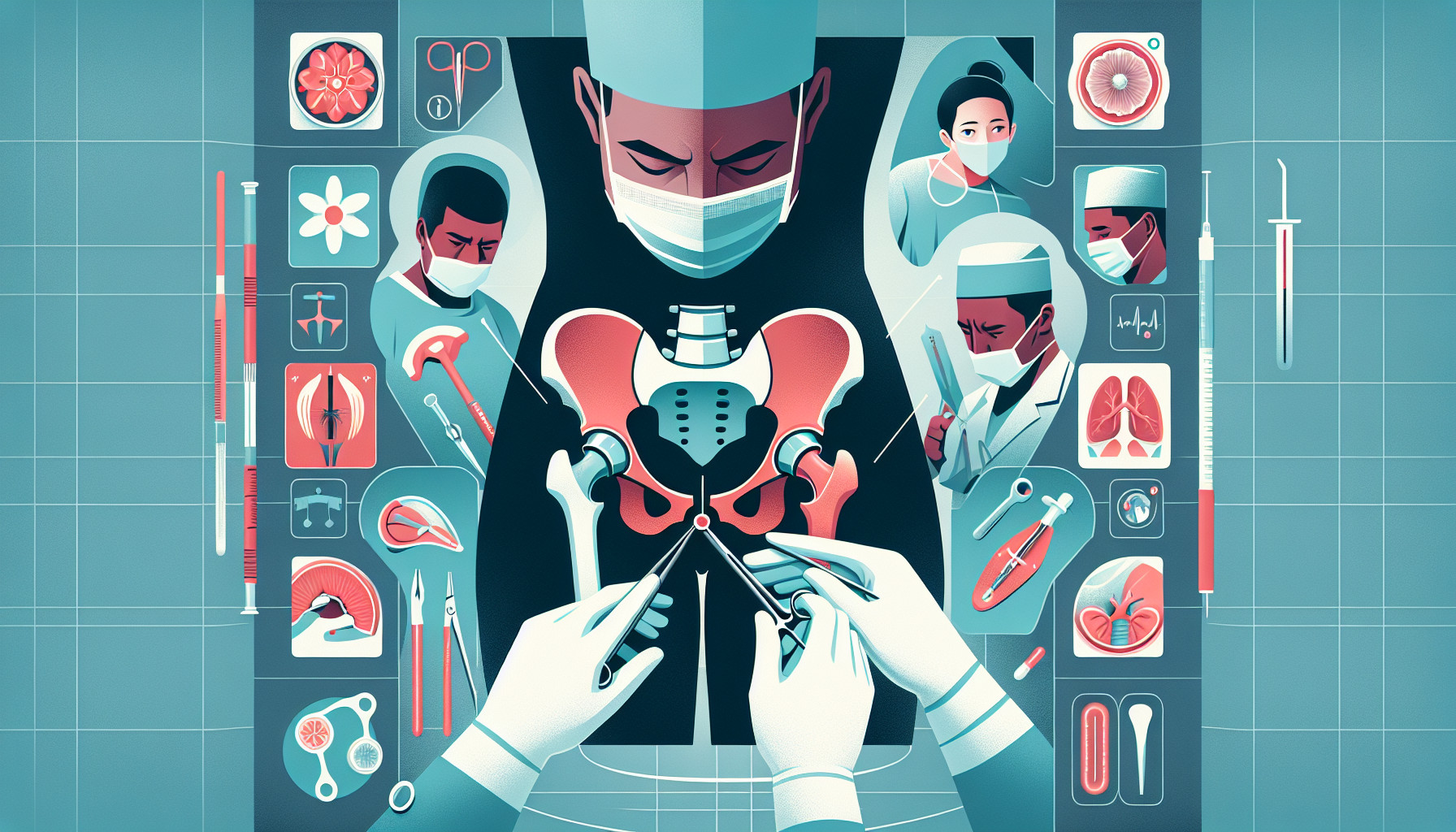Our Summary
This research paper looks at two different methods of performing total hip replacement surgery on both hips. One method is to perform surgery on both hips at the same time (simultaneous) and the other is to perform two separate surgeries (staged). The researchers wanted to know which method was safer and more effective, and whether there were differences in complications between the two methods.
To find this out, they analyzed data from several different studies, which included a total of over 100,000 patients. They found that simultaneous surgery had fewer complications like deep vein thrombosis (a blood clot in a deep vein) and other general and local complications. However, there were more instances of lung-related issues and fractures around the implant area in simultaneous surgeries.
Additionally, simultaneous surgeries seemed to result in less blood loss, shorter hospital stays, and lower costs compared to staged surgeries.
In conclusion, the study suggests that doing both hip replacements at once might have fewer complications and be more cost-effective. However, the authors note that more rigorously designed studies are needed to confirm these findings.
FAQs
- What were the two methods of hip replacement surgery analyzed in this research paper?
- Did the research find one method of hip replacement surgery to be safer and more effective than the other?
- What were the potential complications associated with simultaneous and staged surgeries as per the research findings?
Doctor’s Tip
A helpful tip a doctor might give a patient about hip replacement surgery is to discuss with their healthcare provider the option of having both hips replaced at the same time (simultaneous surgery) as it may have fewer complications, lower costs, and a shorter recovery time compared to having two separate surgeries (staged surgery). However, it is important to weigh the potential risks and benefits of each approach and make a decision based on individual circumstances and medical history. Always consult with your healthcare provider to determine the best course of action for your specific situation.
Suitable For
Patients who are typically recommended for hip replacement surgery are those who have severe hip pain and stiffness that limits their daily activities, have not found relief from other treatments such as medication or physical therapy, have arthritis or other conditions that have damaged the hip joint, have difficulty walking or standing, and have a hip fracture or another injury that has severely damaged the hip joint.
It is important for patients to discuss with their healthcare provider whether simultaneous or staged hip replacement surgery is the best option for them based on their individual circumstances and medical history.
Timeline
Before hip replacement surgery, a patient typically experiences chronic hip pain, limited mobility, difficulty walking and performing daily activities, and possibly stiffness and swelling in the hip joint. They may have tried non-surgical treatments such as physical therapy, medications, and injections with limited success.
After hip replacement surgery, patients can expect a period of recovery and rehabilitation. This includes physical therapy to regain strength and mobility, pain management, and gradually increasing activity levels. Over time, most patients experience significant improvement in pain, mobility, and quality of life. They can return to their normal activities, including walking, exercising, and other daily tasks. With proper care and follow-up, hip replacement surgery can provide long-lasting relief and improved function for patients.
What to Ask Your Doctor
Some questions a patient should ask their doctor about hip replacement surgery include:
- What are the potential risks and complications associated with having both hips replaced at the same time?
- How does the recovery process differ between simultaneous and staged hip replacement surgeries?
- Are there any specific factors that would make me a better candidate for one method over the other?
- What are the long-term outcomes and success rates for each method of hip replacement surgery?
- How will pain management be handled during the recovery period for both hips being replaced at once?
- What is the expected timeline for returning to normal activities and work after having both hips replaced at the same time?
- Will physical therapy be necessary after simultaneous hip replacements, and if so, what does the rehabilitation process entail?
- Are there any additional precautions or considerations I should be aware of if I choose to have both hips replaced simultaneously?
- How many of these types of surgeries have you performed, and what is your success rate with simultaneous hip replacements?
- Are there any alternative treatment options to consider before making a decision about having both hips replaced at once?
Reference
Authors: Ramezani A, Ghaseminejad Raeini A, Sharafi A, Sheikhvatan M, Mortazavi SMJ, Shafiei SH. Journal: J Orthop Surg Res. 2022 Aug 13;17(1):392. doi: 10.1186/s13018-022-03281-4. PMID: 35964047
